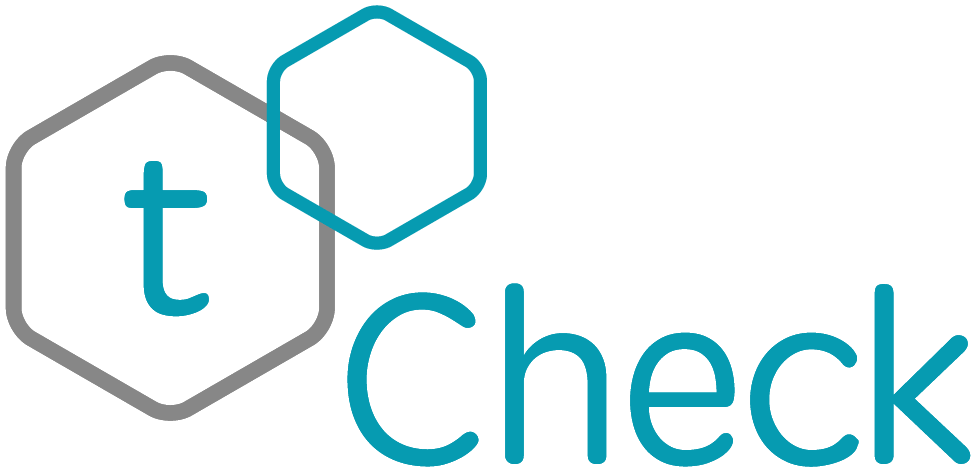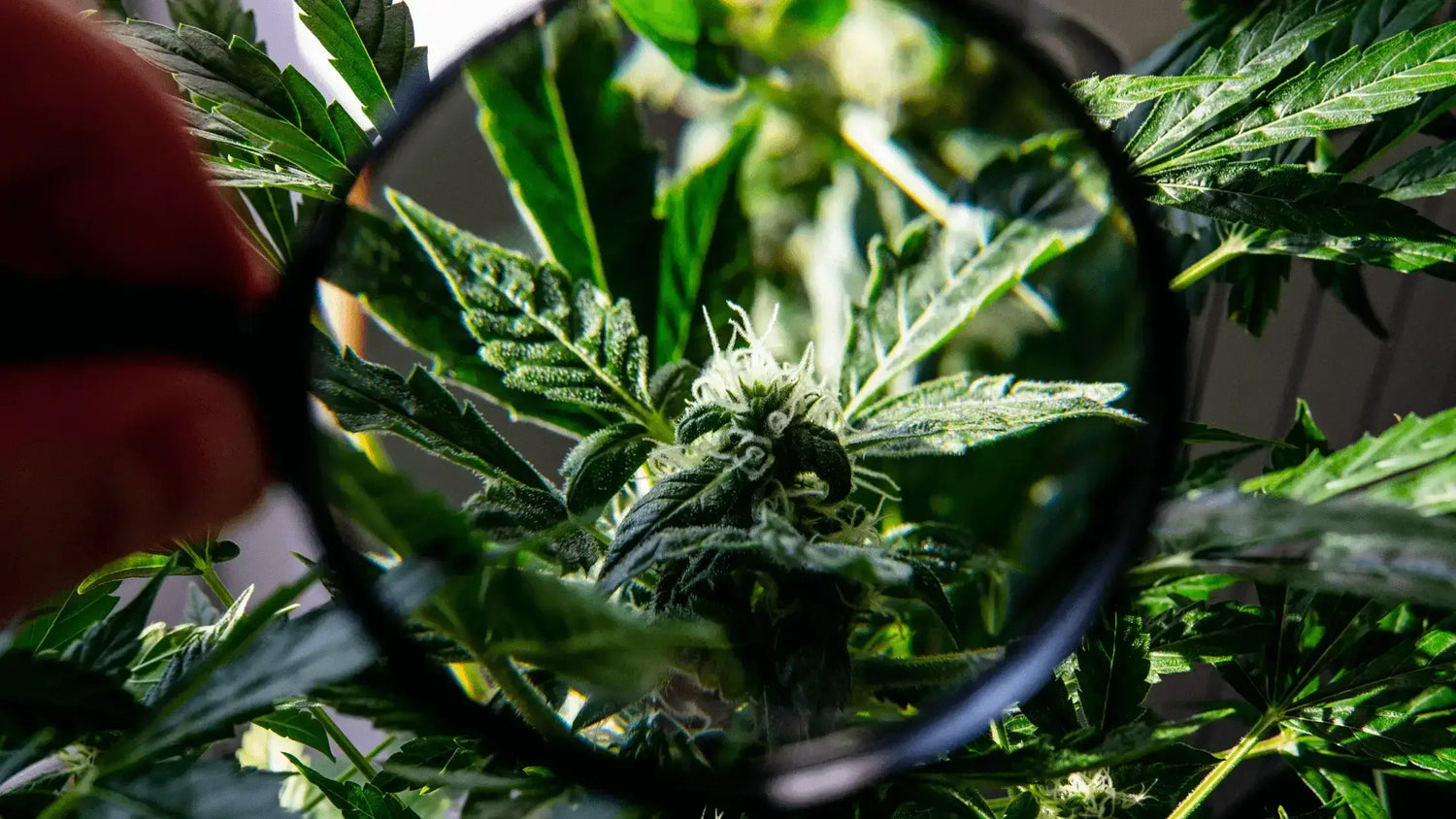Ever stood at the edge of a forest, looking in, curious about what secrets it holds? Well, think of the cannabis world as that forest. You might know about THC and CBD - they're like the big trees you can see from outside. But delve deeper into this green expanse and you'll find more intriguing wonders.
One such wonder is Cannabigerol (CBG). Often overshadowed by its cannabinoid siblings, CBG is akin to an elusive creature hiding within our metaphorical cannabis forest. So why should we care about finding this mysterious entity?
Now, let's fuel your spark of curiosity with knowledge. Today we'll dive into the world of CBG - from its origins and how it compares to other cannabinoids, to potential health benefits and extraction challenges. And by journey's end, you'll have a deep understanding of why testing potency is crucial.
Table of Contents:
- Unveiling the Mystery of CBG
- CBG vs. Other Cannabinoids
- The Health Benefits of CBG
- The Challenges and Prospects of Extracting CBG
- Measuring Potency with tCheck's THC Potency Tester
-
The Role of CBG in Enhancing Cannabis Experience
- tCheck's Solution: Testing Your Cannabis Products
- The Future Potential of CBG
- Making Informed Decisions about CBG
- FAQs in Relation to What is Cbg? Benefits and Uses of Cannabigerol
- Conclusion
Unveiling the Mystery of CBG
If you've been following the cannabis world, chances are you've heard about CBD and THC. But have you met their less famous cousin, Cannabigerol or CBG?
CBG is often called 'The Mother of all Cannabinoids' because it's a precursor to other cannabinoids like THC and CBD. What this means is that both THC and CBD start out as CBG. Intriguing isn't it?
This early bird gets converted into other cannabinoids during the growth phase of the plant. So by harvest time, there’s only a small amount left—usually no more than 1%. Because of its rarity in mature plants, it was somewhat overlooked until recently.
However, with new research emerging on its potential benefits, we might just be witnessing a rising star in cannabinoid health science. While studies are still preliminary and more work needs to be done before we can make definitive claims about its therapeutic value – so far things look promising.
A key factor here though is knowing your potency levels when dealing with products rich in CBGs - which leads us nicely onto how our tCheck's THC Potency Tester comes into play but more on that later.
CBG vs. Other Cannabinoids
You might be familiar with THC and CBD, the superstar cannabinoids of cannabis. But let's shed some light on their lesser-known cousin: CBG or cannabigerol.
Cannabis plants produce cannabigerolic acid (CBGA), which is the precursor to three major cannabinoid lines: tetrahydrocannabinolic acid (THCA), cannabidiolic acid (CBDA), and cannabichromenic acid (CBCA). In simpler terms, without CBGA, there would be no THC or CBD.
So what sets CBG apart from its famous relatives? For starters, it's non-psychoactive like CBD but doesn't interact with our body’s endocannabinoid system in the same way. It has been linked to benefits such as pain relief and inflammation reduction while not producing that characteristic 'high' associated with THC.
tCheck's THC Potency Tester lets you measure these levels accurately for a better understanding of your product. This can help ensure you're getting all the goodness without any unwanted surprises.
- The key difference between them lies within their interaction with receptors in our bodies.
- In simple terms - if cannabinoids were keys; then our body systems are locks they fit into.
- This makes each one unique due to different 'key shapes', thus resulting in varying effects.
The Health Benefits of CBG
CBG, or Cannabigerol, is a cannabinoid present in cannabis plants that does not induce psychoactive effects. It's known as the 'mother' or 'stem cell' of cannabinoids because it serves as a precursor to other compounds like THC and CBD. But what makes this compound truly shine are its potential health benefits.
Firstly, studies have shown that CBG may help reduce intraocular pressure, making it an intriguing option for those struggling with glaucoma. Moreover, early research indicates that CBG might also possess anti-inflammatory properties which could be beneficial in managing conditions such as inflammatory bowel disease.
Beyond these specific areas, there’s more good news about CBG: researchers believe it holds promise when it comes to neuroprotection. According to one study from 2015 published on the National Institutes of Health website, CBG showed potent action against neurodegeneration associated with Huntington’s disease.
All this sounds exciting. But remember – while preliminary findings seem promising, more comprehensive human trials are needed before we can make concrete conclusions about the full extent and applications of these benefits.
The Challenges and Prospects of Extracting CBG
Obtaining CBG from marijuana plants isn't simple. The primary challenge is that it's found in low concentrations, typically less than 1%.
This makes extraction tricky and costly. But don't get discouraged just yet. New breeding techniques are being developed to boost CBG production.
A shining example is research on genetically modified hemp strains. These specially bred plants can produce more CBG, making extraction easier and more cost-effective.
Finding Solutions: tCheck's THC Potency Tester
How do you know if these new techniques are working? You need accurate testing. That’s where our handy dandy tool comes into play - the tCheck THC Potency Tester.
It gives reliable readings for cannabinoid levels, letting growers keep track of their plant’s potency over time – including those elusive THC and CBD levels.
In short, while extracting significant amounts of CBG may be challenging now due to its low concentration in cannabis plants; innovative cultivation practices hold promise for higher yields down the line.
And with tools like our potency tester, monitoring these improvements becomes much simpler.
Measuring Potency with tCheck's THC Potency Tester
If you're curious about the potency of your cannabis products, tCheck's THC Potency Tester is your best friend. This handy device can give accurate measurements within minutes.
The process is simple. Just add a few drops of your infused oil or alcohol into the sample tray and slide it into tCheck. The tester uses light spectrometry to determine cannabinoid concentration, giving you immediate insights on potency.
Although tCheck doesn't measure CBG, it can accurately measure THC and CBD. By understanding the strength of your cannabis product, you can tailor its use based on what works for you personally. It takes out guesswork so that each experience is more informed than before.
This isn’t some kind of magic trick – but real science at work. Remember knowledge equals power, especially when navigating through the dynamic world of cannabis.
The Role of CBG in Enhancing Cannabis Experience
CBG, nicknamed the 'parent' or 'stem cell' of cannabinoids, is known to be a key factor in improving cannabis enjoyment. While THC and CBD usually steal the spotlight, scientific studies show that CBG offers unique effects that can elevate your overall experience.
This underrated cannabinoid has been shown to counteract some adverse effects associated with THC consumption such as paranoia and anxiety. This makes it a valuable player for those seeking balance within their cannabis journey.
Apart from its balancing act, research indicates potential therapeutic benefits of CBG including anti-inflammatory properties which could enhance user comfort during use. But how do you know if your strain is high in this powerhouse cannabinoid?
tCheck's Solution: Ensuring You Get Your Dose of CBG
To make sure you're getting enough CBG, using a device like tCheck’s THC Potency Tester is key. With this tool at hand, you don't need guesswork—you get accurate readings on cannabinoid concentrations right at home.
This gadget lets users measure levels not just for popular cannabinoids like THC or CBD but also lesser-known ones like our hero—CBG. So go ahead and give your cannabis journey an edge by understanding exactly what goes into each dose with tCheck's help.
The Future Potential of CBG
CBG, often referred to as the 'mother' or 'stem cell' of cannabinoids, has an immense future potential. As scientists delve deeper into its unique properties and benefits, we're beginning to see just how influential this cannabinoid could be.
One area where CBG is expected to make a significant impact is in medicine. Its potential anti-inflammatory properties, for instance, could help with conditions like Crohn's disease or irritable bowel syndrome.
In addition to medical uses, there's growing interest in using CBG for skincare products because it may have beneficial effects on skin health due its antioxidant qualities.
To tap into these promising potentials of CBG though, accurate measurement tools are crucial. That’s where tCheck’s THC Potency Tester comes in handy – allowing users not only measure THC but also other cannabinoids including our star here: Cannabigerol (CBG).
- Cultivators can use it when breeding strains high in specific compounds,
- Manufacturers will find value when creating edibles or topicals,
- Patients looking for targeted therapies can use such information too.
We're standing at the brink of a new era where CBG might take center stage among cannabinoids - an exciting prospect indeed.
Making Informed Decisions about CBG
Realizing the strength of knowledge is essential when it comes to Cannabigerol (CBG). Gaining insight into the potential advantages and figuring out how to quantify its strength can assist you with settling on more educated choices.
The first step is understanding what CBG is. Unlike THC, it doesn't get you high. But that's not why we're interested - we're after its possible health benefits.
Studies suggest that CBG may help with conditions such as inflammation, pain relief, and even some neurodegenerative diseases. Pretty impressive for something most people haven't heard of.
To use this information effectively though, you need accurate measurements of your cannabis product's CBG levels. That’s where tCheck’s THC Potency Tester comes into play. It gives reliable readings so you know exactly what you’re working with.
You wouldn’t bake without measuring your ingredients first right? Same principle applies here – knowing your cannabinoid levels helps tailor the experience to fit just right for yourself or others using these products.
FAQs in Relation to What is Cbg? Benefits and Uses of Cannabigerol
What does CBG do to the body?
CBG interacts with our body's endocannabinoid system, potentially helping regulate mood, appetite, and sleep. It also may reduce inflammation.
What drugs should not be taken with CBG?
If you're on medications that warn against grapefruit consumption, steer clear of mixing them with CBG. Always consult your doc first.
Is CBG stronger than CBD?
'Stronger' isn't quite right - each has unique effects. But generally speaking, both compounds have potential therapeutic benefits for various health conditions.
When should CBG be taken?
The best time to take CBG depends on why you're using it. For sleep disorders or anxiety relief at night; if it's for pain management or focus during the day might work better.
Conclusion
So, we've journeyed deep into the cannabis forest and discovered 'What is CBG? Benefits and Uses of Cannabigerol' are far-reaching. This cannabinoid, often overlooked in favor of THC or CBD, has its own unique charm.
But remember - it's not just about finding CBG. Realizing the distinctions between CBG and other cannabinoids is imperative. Each one carries a distinct personality with different health benefits.
The road to extracting CBG might be challenging due to its low concentration in plants but don't let that discourage you. The potential reward is immense!
Your exploration doesn’t stop here though; stay curious because the future holds even more potential for CBG’s uses!











